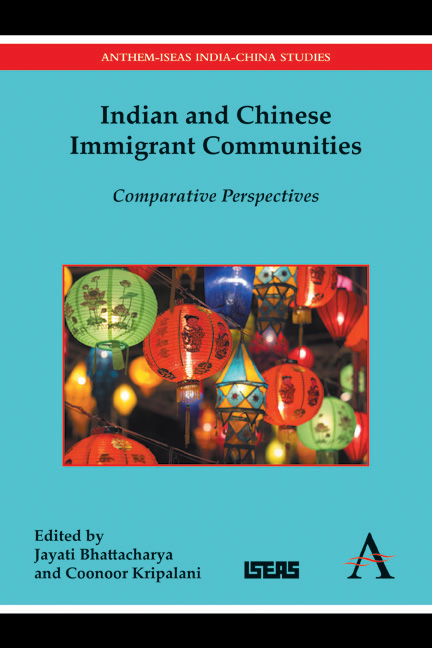Book contents
- Frontmatter
- Contents
- Foreword
- Acknowledgements
- Introduction
- Section I Historical Antecedents and the Question of Nationality
- 1 Blackbirders Refitted? The Journeys of Capitalists and Labourers in the Indian Ocean, 1830s–1930s
- 2 Connecting Diaspora Histories: Indians and Chinese in Colonial Malaya
- 3 Chinese and Indian Diaspora: Some Common and Not-So-Common Cultural Processes
- Section II The Meeting Ground: Indians and Chinese in Southeast Asia
- Section III Indians in China and Chinese in India
- Section IV Across the Globe: Indian and Chinese Diasporas
- Postscript Shifting Worlds and Changing Identities: The Reshaping of the Chinese-Indian Communities in India after the 1962 “Sino-Indian Incident”
- List of Contributors
- Index
1 - Blackbirders Refitted? The Journeys of Capitalists and Labourers in the Indian Ocean, 1830s–1930s
from Section I - Historical Antecedents and the Question of Nationality
Published online by Cambridge University Press: 05 December 2015
- Frontmatter
- Contents
- Foreword
- Acknowledgements
- Introduction
- Section I Historical Antecedents and the Question of Nationality
- 1 Blackbirders Refitted? The Journeys of Capitalists and Labourers in the Indian Ocean, 1830s–1930s
- 2 Connecting Diaspora Histories: Indians and Chinese in Colonial Malaya
- 3 Chinese and Indian Diaspora: Some Common and Not-So-Common Cultural Processes
- Section II The Meeting Ground: Indians and Chinese in Southeast Asia
- Section III Indians in China and Chinese in India
- Section IV Across the Globe: Indian and Chinese Diasporas
- Postscript Shifting Worlds and Changing Identities: The Reshaping of the Chinese-Indian Communities in India after the 1962 “Sino-Indian Incident”
- List of Contributors
- Index
Summary
“One thing Zachary did know about the Ibis,” Amitav Ghosh writes in his novel Sea of Poppies, “was that she had been built to serve as a ‘blackbirder,’ for transporting slaves. […] As with many another slave-ship, the schooner's new owner had acquired her with an eye to fitting her for a different trade: the export of opium.” It is not until the Ibis reaches the river Hooghly that Zachary Reid, the son of a Maryland freedwoman, encounters Ben Burnham, the ship's new owner. Burnham informs young Zachary that the Ibis will not carry opium on its first voyage as the Chinese are having difficulty understanding the benefits of free trade. Instead, the vessel will do just the kind of work she was intended for. “D'ya mean to use her as a slaver, sir? But have not your English laws outlawed that trade?” a startled Zachary asks. Burnham replies that those who would stop at nothing to halt the march of human freedom have indeed outlawed the trade. “Well sir,” Zachary demurs, “if slavery is freedom then I'm glad I don't have to make a meal of it. Whips and chains are not much to my taste.” But Burnham reassures him; the Ibis will carry not slaves, but coolies. “Have you not heard it said that when God closes one door he opens another? When the doors of freedom were closed to the African, the Lord opened them to a tribe that was yet more needful of it – the Asiatick.”
Burnham's “doors of freedom” would remain open to African and Asiatic alike long after the formal abolition of slavery and the slave trade in various colonial territories. The stuff of self-congratulatory anniversaries and observances of expiation – the cleansing of collective guilt – the dates of declaratory promises of freedom for enslaved peoples hold little substantive meaning for historians.
- Type
- Chapter
- Information
- Indian and Chinese Immigrant CommunitiesComparative Perspectives, pp. 3 - 12Publisher: Anthem PressPrint publication year: 2015

